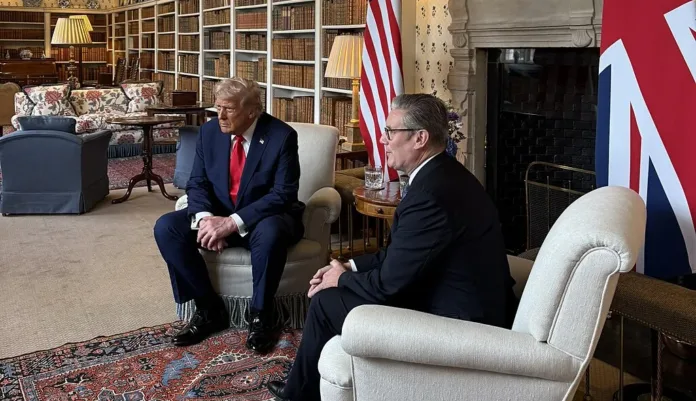Record £150bn in US investment shocks critics as thousands of jobs hinge on controversial visit
LONDON: In a blistering show of economic theatre, the UK government has confirmed that U.S. President Donald Trump’s state visit has yielded £150 billion in inward investment, the largest single commercial package ever secured during a state visit.
The sum includes a previously reported £100 billion long-term commitment from private equity giant Blackstone, plus £3.9 billion from logistics and real-estate firm Prologis, chiefly earmarked for life sciences and advanced manufacturing.
Prime Minister Sir Keir Starmer, under intense political pressure, rolled out the red carpet — literally and figuratively — seeking to deliver the economic gains he promised when taking office. Facing criticism for hosting an unprecedented second state visit for Trump, Starmer sought to pivot the narrative sharply in favour of jobs, growth, and opportunity.
Embed from Getty ImagesThe government projects that this investment will generate 7,600 high-quality jobs across the UK. Regions set to benefit include Belfast (with about 1,000 roles) and 6,000 more spread across Glasgow, Warrington, the Midlands, and the North East.
In addition to these huge inflows, the visit has also triggered what the UK government calls the Tech Prosperity Deal, which is supposed to deepen ties between Britain and the U.S. in areas such as artificial intelligence, energy, nuclear development and innovation.
But this bonanza of investment has come at a cost or at least controversy. Public opinion is sharply divided. For many, the economic windfall seems like a necessary balm; for others, it smacks of compromise, especially given the polarised figure of President Trump and the diplomatic tightrope Starmer must walk with both critics at home and global expectations. Still, inside government circles, this deal is being framed not just as a victory lap, but as a strategic reset: affirming the UK’s position as a destination for future-focused industries, reinvigorating regions long neglected, and signalling that, whatever else politics hands over, Britain is open for business.
